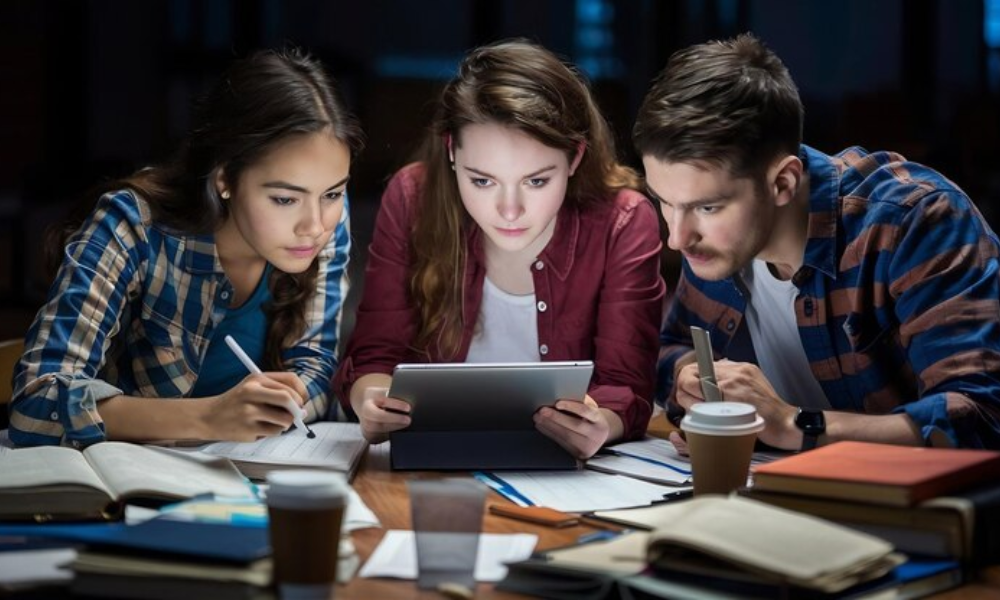
Education is one of the most important parts of life. It shapes how we think, how we interact with the world, and how we build our futures. At its core, education is not just about memorizing facts or passing exams, it’s about growth. It teaches us how to solve problems, communicate effectively, and make informed decisions. Whether learning takes place in a classroom, through online platforms, or in daily life, it gives people the tools they need to succeed and live with purpose.
When we think of education, the first image that comes to mind might be students sitting at desks, listening to a teacher. But education is so much more than that. It’s a journey that begins the moment we start observing the world around us and continues for a lifetime. It’s the process of gaining not only academic knowledge but also the life skills that help us adapt to challenges and embrace opportunities.
From Childhood to Adulthood: The Lifelong Journey of Learning
From a young age, learning plays a vital role in shaping who we are. It opens doors to new ideas, introduces us to different cultures, and teaches us how to relate to others. As children, our curiosity drives us to explore, whether it’s asking endless questions, experimenting with new activities, or observing how things work. This curiosity is the foundation of education.
Education doesn’t only give us information; it builds our character. It teaches discipline, patience, and the importance of working toward goals. For example, a child who practices reading every day not only improves literacy skills but also develops habits of persistence and focus, qualities that will serve them well throughout life.
Importantly, education is a right that should be available to everyone, regardless of where they live or what their background may be. When people have equal access to learning opportunities, societies become stronger, fairer, and more innovative.
The Role of Schools in a Child’s Life
Schools are central to a child’s formal education. They are not just buildings filled with desks and books, they are communities where students learn, grow, and discover their talents. In school, children interact with peers from different backgrounds, learn to work in teams, and practice problem-solving in real-world situations.
Teachers play a crucial role in guiding this process. They don’t just transfer knowledge; they inspire curiosity and help students think critically. A great teacher can turn a boring subject into an exciting adventure, showing students how it connects to the world outside the classroom. For example, a science teacher might bring in plants to explain photosynthesis or organize a simple experiment to spark interest in chemistry.
Schools also provide a balanced education by offering a variety of subjects. Academic courses like math, science, and language are essential, but creative subjects such as art, music, and drama also play a huge role in development. Creative learning helps students think in innovative ways, express themselves, and build emotional intelligence. Similarly, sports and physical education encourage teamwork, resilience, and healthy habits.
Learning Beyond the Classroom Walls
While schools are important, education doesn’t end when the school bell rings. Learning happens everywhere, at home, in the community, and even online. A trip to the grocery store can teach a child about budgeting, nutrition, and decision-making. Helping in the kitchen can improve math skills through measuring ingredients and strengthen problem-solving when following a recipe.
Parents and families are key partners in this process. Reading bedtime stories, having meaningful conversations, or exploring hobbies together all contribute to a child’s growth. Friends and mentors also provide valuable lessons by sharing experiences and perspectives.
Technology has made learning outside the classroom easier than ever. With educational apps, online courses, and virtual museums, people can explore almost any topic at their own pace. This access to knowledge means that learning can continue anytime, anywhere.
Why Education Matters for the Future
The future is unpredictable, but one thing is certain: education prepares us to face it. A well-educated person is better equipped to adapt to changes, whether in the workplace, the environment, or society.
Education also builds empathy and understanding. When people learn about history, cultures, and social issues, they are more likely to respect differences and work toward peaceful solutions. For instance, learning about climate change can inspire young people to take action to protect the environment. Understanding health and nutrition can lead to healthier lifestyles and longer lives.
Unfortunately, not everyone has access to quality education. In some parts of the world, children have to walk miles to reach the nearest school, and in others, poverty forces them to leave school early. These challenges make it even more important for communities and governments to invest in education. When more people can read, write, and think critically, economies grow, innovation flourishes, and societies become more just.
The Power of Lifelong Learning
Education is not limited to childhood or early adulthood, it continues throughout life. Lifelong learning keeps the mind active and the spirit engaged. Adults may pursue further education to advance in their careers, learn new skills for hobbies, or simply explore topics that interest them.
For example, someone might learn a new language to connect with people in different countries or take a cooking class to explore international cuisines. Others might take courses on digital skills to keep up with technological advances. Each new skill learned opens the door to more opportunities and experiences.
Lifelong learners tend to be more adaptable in the face of change. They embrace challenges instead of fearing them because they see each challenge as a chance to grow. This mindset is especially important in today’s rapidly changing world, where jobs, industries, and technologies are constantly evolving.
Conclusion: Learning Builds a Brighter Future
Education is far more than just schooling, it’s a lifelong journey that shapes our character, values, and potential. From classrooms and playgrounds to homes and libraries, learning happens everywhere and influences everything we do.
When people have the opportunity to learn, they can unlock their full potential and contribute meaningfully to society. They can become professionals, innovators, leaders, and compassionate citizens. More importantly, they can use their knowledge to improve not just their own lives but also the lives of others.
The real power of education lies not only in what we know but in how we use that knowledge to make the world a better place. Every person, regardless of age or background, deserves the chance to learn and grow. And every day presents an opportunity to discover something new. That is the beauty of education, it never truly ends.

